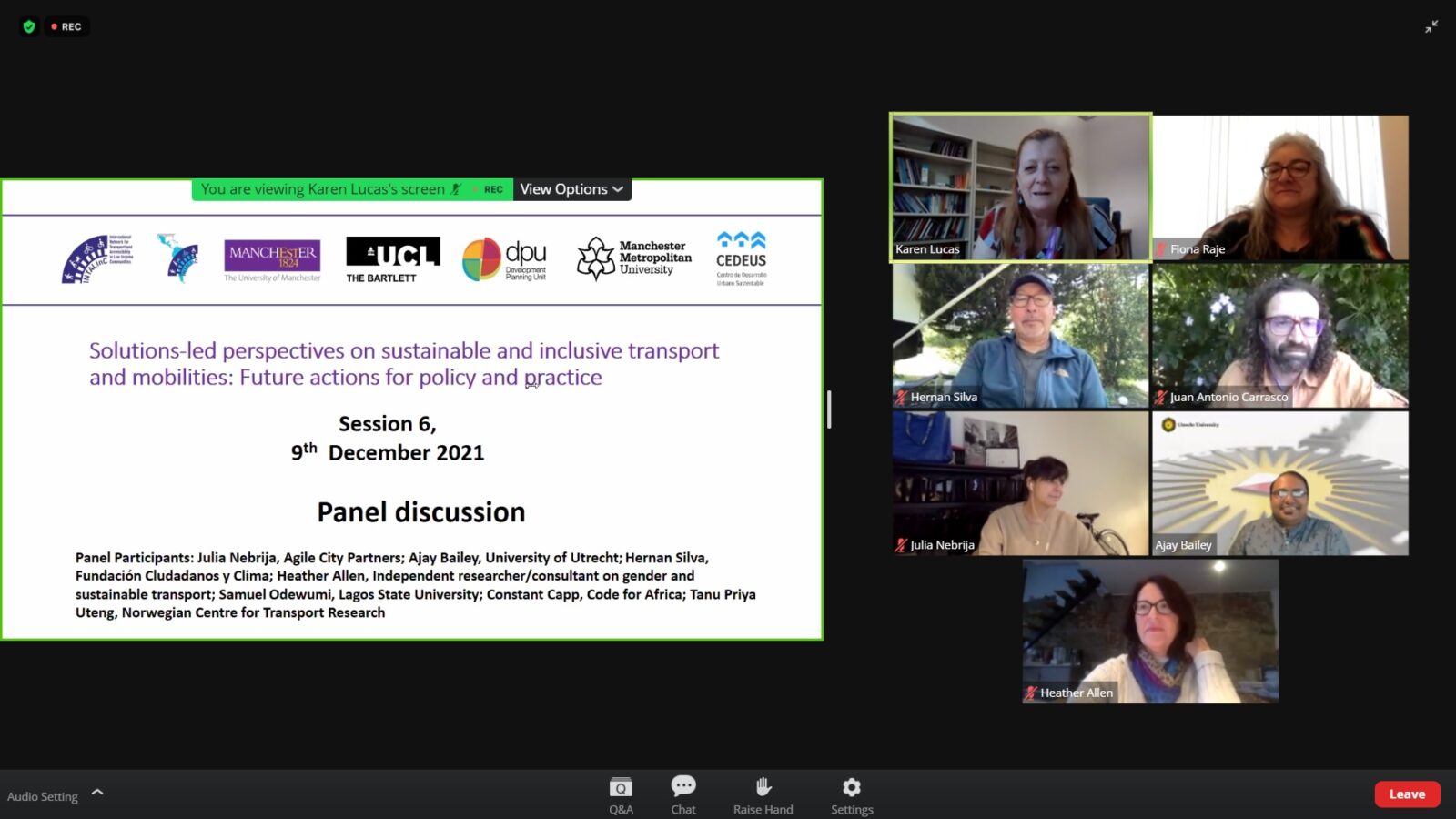News
Prof. Ajay at a panel discussion convened by INTALInC
Prof. Ajay, the principal investigator of the EQUIMOB project, participated in a panel discussion convened by INTALInC on 09 December 2021. The panel comprised of speakers who had previously delivered webinars in the INTALInC series. This discussion was aimed to harness the varied experiences and identify pathways to solve complex issues of mobilities in cities of the Global South.
Session Chairs: Fiona Rajé, Manchester Metropolitan University and Juan Antonio Carrasco, Universidad de Concepción and CEDEUS
Panel Participants: Julia Nebrija, Agile City Partners; Ajay Bailey, University of Utrecht; Jim Walker, Walk21; Hernan Silva, Fundación Cludadanos y Clima; Heather Allen, Independent researcher/ consultant on gender and sustainable transport; Samuel Odewumi, Lagos State University; Constant Capp, Code for Africa; Tanu Priya Uteng, Norwegian Centre for Transport Research

Expert speakers from various contexts brought in multiple solutions for inclusive and sustainable transport in urban settings. From her experience working in Indonesia, Julia expressed the need for researchers to be realistic about what they expect from the practitioners, given that these department staffs are already overstretched. Further, Constant and Ajay suggested stepping back and understanding the marginalisation of certain groups even when infrastructural projects are being envisioned. The urgent need for social equity assessments during project implementation was highlighted. They cautioned the practitioners about the trade-offs between sustainable projects and inclusivity.
The three core understandings from this quest for citizen-centric solutions were:
- Improved communication – using different and relevant modes between researchers and practitioners to better sell the insights to the wider community
- Education is important – usually confined to transport engineering, transport education needs to move beyond universities and be participatory.
- Need for a balanced handbook – which comprises good practices and practices and projects that did not do well.
With these knowledge practices, experts argued there would be better communication among Global South cities and help them bridge the gap between policy and practice for sustainable and inclusive transport systems.

